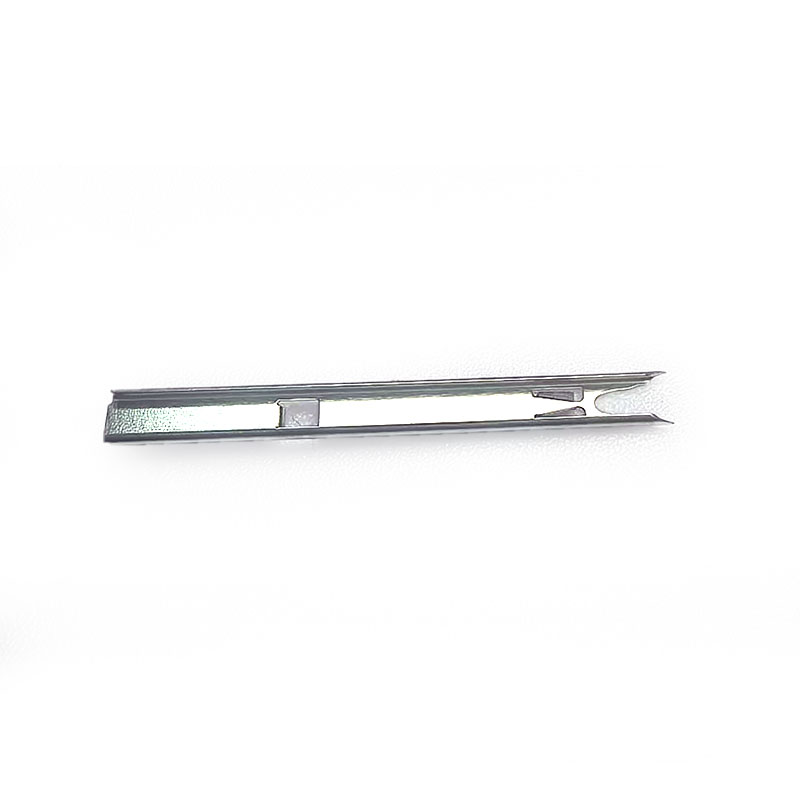How Does Connector Metal Stamping Improve Electronic Component Reliability?
2025-09-03
In today’s rapidly advancing electronics industry, connector metal stamping plays a crucial role in ensuring high-quality, precise, and durable components. From smartphones and automobiles to industrial control systems and medical devices, stamped connectors form the backbone of reliable electrical connections.
What Is Connector Metal Stamping and Why Does It Matter?
Connector metal stamping is a high-precision manufacturing process that transforms flat metal sheets into complex connector components using specialized dies and stamping presses. The resulting parts are widely used in electrical connectors, terminals, pins, and housings to enable seamless data and power transmission.
Importance of Connector Metal Stamping
-
Precision Engineering – Ensures micro-level accuracy for stable and reliable connections.
-
High Production Efficiency – Allows mass production while maintaining uniform quality.
-
Material Optimization – Minimizes waste by utilizing advanced stamping technologies.
-
Enhanced Durability – Produces components capable of withstanding harsh environments.
Applications Across Industries
Connector metal stamping is essential in various sectors, including:
-
Automotive – Electrical harness connectors, battery terminals, and infotainment systems.
-
Consumer Electronics – Smartphones, laptops, tablets, and wearables.
-
Medical Devices – Diagnostic tools, monitoring systems, and surgical equipment.
-
Telecommunications – High-speed data connectors and fiber-optic interfaces.
-
Industrial Automation – Robotics, sensors, and heavy-duty control units.
With the miniaturization of electronics, the demand for micro-precision stamped connectors continues to grow, making connector metal stamping an indispensable technology in modern manufacturing.
How Does Connector Metal Stamping Work?
The connector metal stamping process involves several stages designed to achieve maximum precision and efficiency. Here’s an overview of the typical workflow:
Key Advantages of the Process
-
High-speed production capabilities
-
Excellent repeatability and consistency
-
Reduced overall manufacturing costs
-
Compatibility with micro-miniature components
Connector Metal Stamping Product Specifications
When selecting connector metal stamping solutions, understanding technical parameters is essential. Below is a table summarizing typical product specifications:
| Specification | Details |
|---|---|
| Material Options | Copper, Brass, Phosphor Bronze, Stainless Steel, Aluminum |
| Material Thickness | 0.05 mm – 3.0 mm |
| Tolerances | ±0.005 mm for micro components |
| Plating Options | Gold, Tin, Nickel, Silver |
| Production Volume | Prototype runs to millions of pieces |
| Applications | Terminals, Pins, Connectors, Contact Blades, Housings |
| Testing Standards | ISO 9001, IATF 16949, RoHS, REACH |
By offering highly customizable specifications, manufacturers can deliver stamped connectors that meet the exacting demands of different industries.
Connector Metal Stamping FAQs
Q1. What factors should I consider when selecting a connector metal stamping supplier?
A: When choosing a supplier, you should evaluate several factors:
-
Technical Expertise – Look for experience in precision stamping and progressive die design.
-
Material Compatibility – Ensure the supplier works with the metals and plating options required for your application.
-
Quality Assurance – Check for compliance with international standards like ISO 9001 and IATF 16949.
-
Production Capacity – Confirm that they can handle your volume requirements, from prototypes to mass production.
-
Lead Time – Reliable suppliers offer short turnaround times without compromising quality.
Q2. How does connector metal stamping compare to CNC machining for connector production?
A: While both processes manufacture precision components, connector metal stamping offers distinct advantages:
-
Cost Efficiency – Ideal for high-volume production due to reduced material waste.
-
Speed – Progressive dies enable rapid output without sacrificing accuracy.
-
Complexity – Capable of producing intricate geometries at a lower cost than CNC machining.
-
Consistency – Stamped parts maintain uniformity even in mass production runs.
For large-scale manufacturing, connector metal stamping typically provides better scalability and lower costs than CNC machining.
Choosing Qiren for Reliable Connector Metal Stamping
As industries push the limits of miniaturization, speed, and performance, connector metal stamping has become a cornerstone of modern electronics manufacturing. High-precision stamped connectors ensure stable data and power transmission while meeting demanding quality standards across automotive, electronics, telecommunications, and medical sectors.
At Qiren, we specialize in delivering custom connector metal stamping solutions designed to meet your exact specifications. Our advanced tooling, strict quality control, and flexible production capabilities make us the trusted partner for leading global brands.
If you’re looking to enhance your products with high-performance stamped connectors, contact us today to discuss your requirements and get expert guidance tailored to your project needs.



